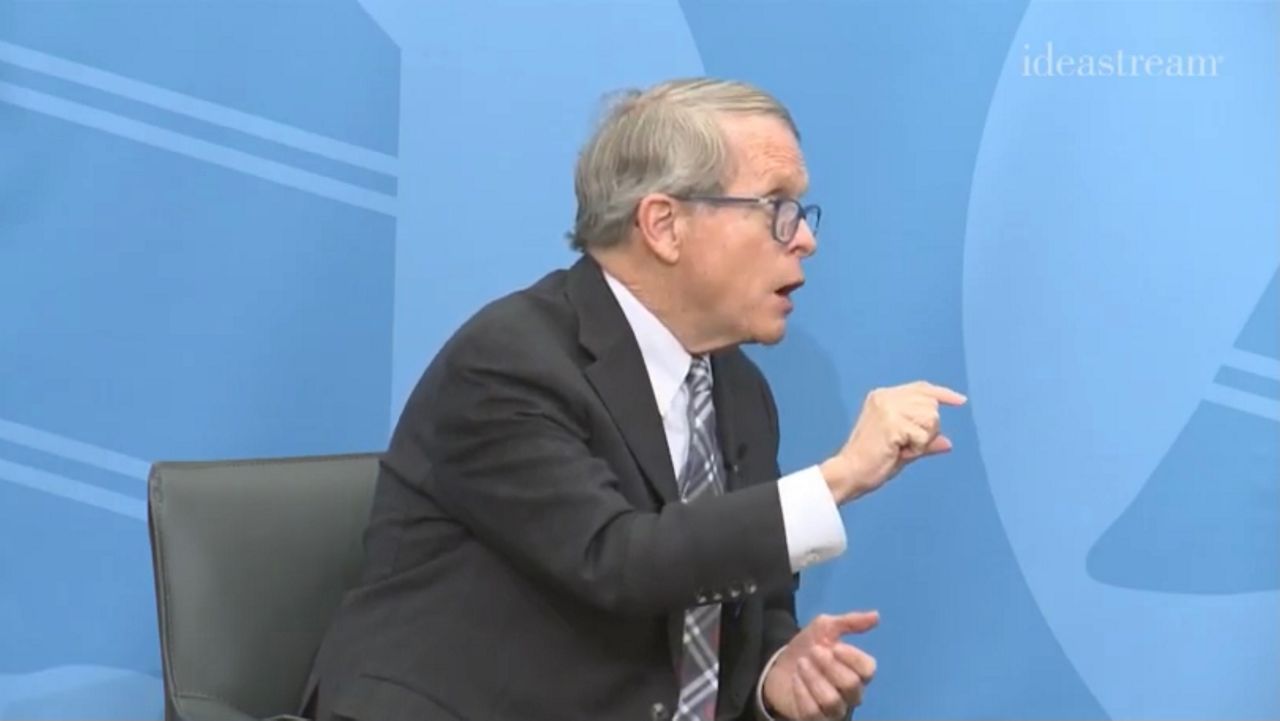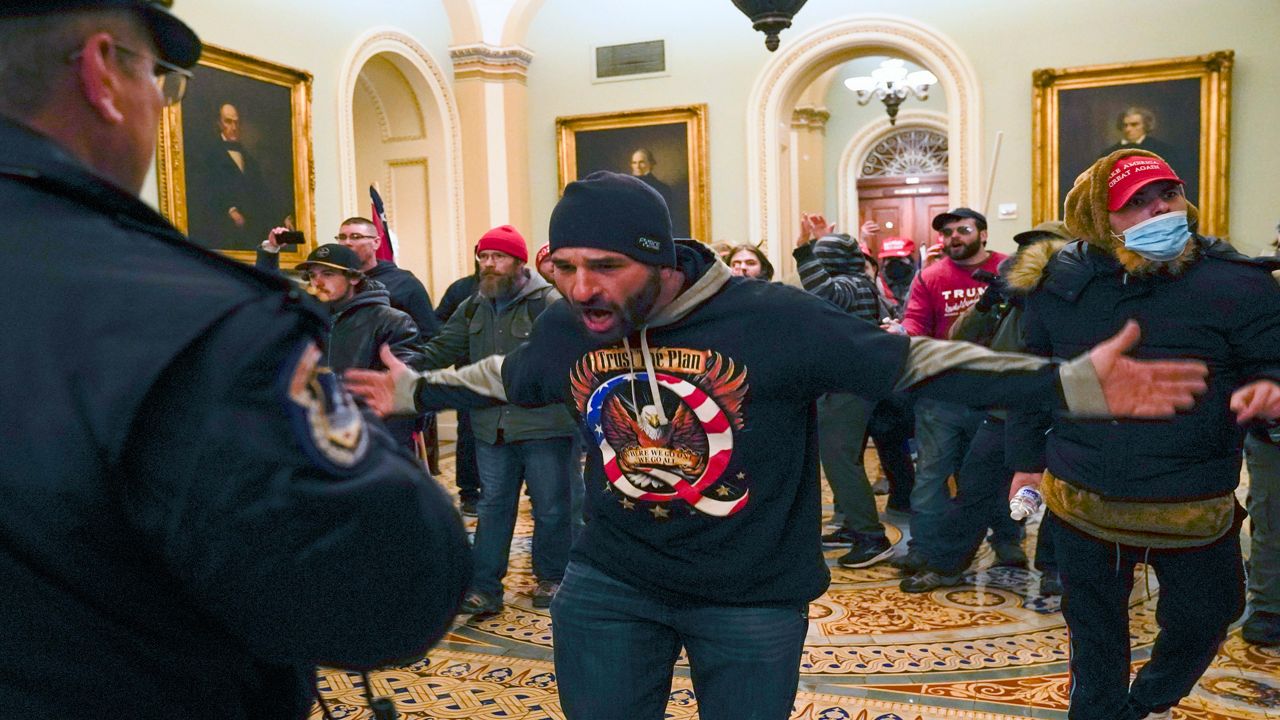COLUMBUS, Ohio (AP) — Republican Ohio Gov. Mike DeWine, trolled by former President Donald Trump for acknowledging the legitimacy of President Joe Biden’s election, said Friday he’d accept a Trump endorsement for his second gubernatorial run.
“Well, sure,” DeWine said when asked about the possibility during a forum at the City Club of Cleveland.
“Endorsements are interesting but ultimately people make a decision who they want to be their governor or their senator,” DeWine said. “I’m not sure endorsements play such a huge role.”
Asked if he stood by that position in light of the Jan. 6 storming of the U.S. Capitol by a mob of Trump supporters, DeWine called it “a horrible, horrible day,” especially for someone like him who served 20 years in the Capitol as a congressman and senator.
Trump “should have done more,” DeWine said.
DeWine has long avoided criticism of Trump, frequently saying it was important for Ohio that he have a good relationship with the White House. An exception came the day after the breach, when DeWine said Trump “poured gas on the fire” ahead of the siege at the U.S. Capitol.
Trump returned DeWine’s longtime loyalty by hinting in a tweet last year that DeWine needed a 2022 primary opponent.
The tweet came a day after DeWine said on CNN that Trump should begin a transition to Biden.
DeWine’s not alone in harshly criticizing Trump over the Capitol assault and then turning around and supporting him.
“The nominee of the party? Absolutely,” Senate Minority Leader Mitch McConnell said Feb. 25 when asked if he would support Trump if he secured the Republican nomination in 2024.
Shortly after voting to acquit Trump at his second impeachment trial, McConnell denounced Trump, calling him “morally responsible” for the attack on the U.S. Capitol. In turn, Trump called McConnell a “dour, sullen and unsmiling political hack.”
Also Friday, DeWine defended the decision by Ohio Republican Congressman Anthony Gonzalez to vote in favor of impeaching Trump. Many conservative Republicans called on Gonzalez to resign.
“He was voting his conscience. He made that call. That was his decision,” DeWine said. “I think he’s been a good member of Congress. He should not resign.”







